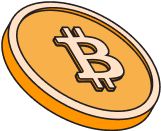How to Choose an Exchange to Buy and Trade Hedera (HBAR)
When selecting an exchange to trade Hedera (HBAR), it’s important to consider several key factors that will impact your trading experience. These factors include trading fees, payment methods, security features, and the platform’s accessibility. Additionally, the liquidity of the exchange, quality of customer support, user interface, and the exchange’s reputation within the HBAR community should all be evaluated. By carefully assessing these elements, you can choose an exchange that best meets your trading needs and ensures a smooth, secure, and cost-effective experience.
Trading Fees
Trading fees are a crucial factor to consider when choosing an exchange for Hedera (HBAR). These fees can significantly affect your profitability, especially if you trade frequently. Most crypto exchanges charge maker and taker fees, which vary in percentage depending on the platform. It’s important to compare the fee structures of different exchanges to find the one that offers the most competitive rates, as even small differences in fees can add up over time.
Reputation Amongst HBAR Traders
The reputation of an exchange within the Hedera (HBAR) trading community is a key indicator of its reliability and quality. A platform with a positive reputation is likely to offer better service, security, and overall user experience. Engaging with community forums, reading user reviews, and considering feedback from other traders can provide valuable insights into the exchange’s trustworthiness and performance, helping you make a more informed decision.
Security
Security is paramount when trading Hedera (HBAR). A reputable exchange should have strong security measures in place, such as two-factor authentication (2FA), cold storage for digital assets, and regular security audits. These features help protect your funds from potential threats like hacking or fraud. Always choose an exchange with a proven track record of safeguarding user assets to ensure your investments remain secure.
Accessibility
Accessibility is an essential factor, including the platform’s user-friendliness, regional availability, and mobile support. A user-friendly interface makes navigating the platform easier, especially for beginners, while regional availability ensures that you can access the platform’s services in your country. Additionally, mobile compatibility allows you to manage your trades on the go, ensuring you never miss a trading opportunity.
Payment Methods
The range of payment methods supported by an exchange is another key consideration. Common methods include bank transfers, credit/debit cards, and cryptocurrency deposits. Having multiple payment options allows for greater flexibility and convenience when funding your account or withdrawing earnings. It’s also important to consider the fees and processing times associated with each payment method, as these can vary and impact your overall trading experience.
Support
Reliable customer support is vital for resolving any issues that may arise while trading. Whether you encounter technical difficulties, have questions about transactions, or need assistance with your account, having access to prompt and knowledgeable support can make a significant difference. Look for exchanges that offer multiple support channels, such as live chat, email, and phone, and have a reputation for quick and effective service.
User Interface
The user interface (UI) of an exchange plays a significant role in your overall trading experience. A well-designed UI should be intuitive and easy to navigate, allowing you to execute trades, monitor your portfolio, and access essential information without hassle. Whether you are new to trading or an experienced user, a clear and responsive interface can enhance your efficiency and confidence when trading Hedera (HBAR).
Liquidity of Crypto Assets
Liquidity is critical when trading Hedera (HBAR) as it affects how easily you can buy or sell assets without causing significant price changes. High liquidity ensures that there are enough buyers and sellers in the market, allowing you to execute trades at your desired price with minimal slippage. Choosing an exchange with high liquidity for HBAR can help you trade more efficiently and avoid potential delays during periods of market volatility.
What is Hedera (HBAR)?
Hedera (HBAR) is the native cryptocurrency of the Hedera Hashgraph network, a decentralized public ledger that uses a unique consensus algorithm known as Hashgraph. Unlike traditional blockchains, Hedera offers fast, secure, and scalable solutions for developers and enterprises, making it ideal for building decentralized applications (dApps) across various industries. Hedera’s unique technology, which promises low transaction costs and high throughput, sets it apart from other altcoins. These attributes make HBAR an attractive option for traders looking to invest in innovative blockchain technologies, influencing the choice of exchanges that support these features.
History of Hedera (HBAR)
Hedera Hashgraph was co-founded by Dr. Leemon Baird and Mance Harmon in 2018, with the goal of creating a more secure and efficient public ledger. The project quickly gained attention due to its novel Hashgraph consensus algorithm, which offers several advantages over traditional blockchain technology, including faster transaction speeds and greater energy efficiency. HBAR, the network’s native cryptocurrency, was launched through a public sale in September 2019. Since then, Hedera has grown into a robust ecosystem, attracting partnerships with leading enterprises and expanding its use cases across finance, supply chain, and beyond.
The Future of Hedera (HBAR) in the Cryptocurrency Market
Hedera (HBAR) has a promising future in the cryptocurrency market, driven by its unique Hashgraph technology and strong enterprise partnerships. As more developers and businesses adopt Hedera for its fast, secure, and scalable solutions, the demand for HBAR is likely to increase. Future developments, such as network upgrades and new use cases in decentralized finance (DeFi) and supply chain management, could further boost Hedera’s value. As the blockchain industry continues to evolve, Hedera’s innovative approach positions it as a significant player, making HBAR a potentially strong investment option for the future.
Types of Hedera (HBAR) Exchanges and Trading Platforms
Hedera (HBAR) can be traded on various types of exchanges and platforms, each offering distinct features and benefits. Understanding these different types can help you choose the platform that best suits your trading strategy and preferences.
Hybrid Exchanges
Hybrid exchanges combine the features of both centralized and decentralized exchanges. They offer the security and privacy of decentralized platforms while providing the liquidity and user-friendly interfaces of centralized exchanges. These platforms are ideal for traders who want the best of both worlds when trading HBAR.
Security Token Exchanges
Security token exchanges specialize in trading tokenized securities, including HBAR. These platforms are typically regulated, providing a higher level of security and compliance. They are well-suited for traders looking to invest in HBAR as a secure, long-term asset within a regulated environment.
Staking Platforms
Staking platforms allow you to earn rewards by staking your Hedera (HBAR) tokens. By participating in staking, you help secure the network and, in return, earn additional HBAR as a reward. These platforms are perfect for long-term HBAR holders looking to generate passive income while supporting the network’s stability and security.
Over-the-Counter (OTC) Exchanges
OTC exchanges facilitate large-volume trades of Hedera (HBAR) directly between two parties. These platforms are often used by institutional investors or individuals looking to execute significant trades without impacting the market price. OTC exchanges provide privacy and the ability to negotiate terms directly with the counterparty.
Day Trading Exchanges
Day trading exchanges are designed for traders who engage in frequent, short-term trades of Hedera (HBAR). These platforms typically offer advanced trading tools, high liquidity, and low fees, making them ideal for those who rely on rapid price movements and need to execute multiple trades within a day.
How to Start Trading HBAR
Before you start trading Hedera (HBAR), it’s essential to choose a reliable exchange that supports HBAR trading and meets your specific needs. Once you’ve selected an exchange, follow these steps to begin trading:
- Create an Account: Sign up for an account on your chosen exchange and complete any required identity verification processes, which may include providing ID and proof of address.
- Deposit Funds: Deposit funds into your exchange account using your preferred payment method, such as a bank transfer, credit card, or cryptocurrency deposit.
- Select HBAR: Navigate to the trading section of the platform and select Hedera (HBAR) from the list of available cryptocurrencies.
- Place Your Trade: Choose whether to place a market order, which executes immediately at the current market price, or a limit order, which only executes at a specific price you set.
By following these steps, you can start trading Mantle (MNT) efficiently and securely. It’s important to stay informed about market trends and exchange updates to optimize your trading strategy and ensure a positive experience.
Exchange Fees When Buying and Selling HBAR
Understanding the fees associated with trading Hedera (HBAR) is crucial for managing your trading costs and maximizing profitability. Different exchanges charge various fees, including staking fees, fiat deposit fees, and withdrawal fees. Being aware of these fees can help you choose the most cost-effective platform and develop a more efficient trading strategy.
Staking Fees
Staking fees are charged by some platforms when you stake your Hedera (HBAR) tokens to earn rewards. These fees may be a percentage of the staking rewards or a flat fee deducted from your earnings. It’s important to understand these fees before committing your HBAR to a staking platform, as they can impact the overall returns on your investment.
Fiat Deposit Fee
Fiat deposit fees are charged when you deposit traditional currency, such as USD or EUR, into your exchange account to purchase Hedera (HBAR). These fees vary depending on the payment method used, with credit/debit cards often incurring higher fees than bank transfers. Understanding fiat deposit fees is essential for budgeting your initial investment and ensuring you get the best value for your funds.
Withdrawal Fees
Withdrawal fees are charged when you transfer your Hedera (HBAR) from the exchange to an external wallet. These fees cover the network costs associated with processing the transaction. Withdrawal fees can vary depending on the exchange and the current state of the network, so it’s important to factor them into your overall trading costs, especially if you plan to move your HBAR frequently.
Other Altcoins You Can Trade
While Hedera (HBAR) offers unique advantages within the blockchain ecosystem, there are other altcoins that provide different opportunities for traders. Each of these altcoins has its own distinct features and use cases, making them valuable additions to a diversified trading portfolio.
- Cardano (ADA): Cardano is a blockchain platform focused on sustainability and scalability, offering a secure and scalable environment for smart contracts and decentralized applications.
- Algorand (ALGO): Algorand is a blockchain designed for speed and efficiency, enabling fast transactions with low fees, making it ideal for decentralized finance (DeFi) applications.
- Tezos (XTZ): Tezos is a self-amending blockchain that allows for on-chain governance, enabling the network to upgrade itself without the need for hard forks.
- VeChain (VET): VeChain is a blockchain platform specifically designed for supply chain management, offering tools to enhance transparency and efficiency across supply chains.
- Cosmos (ATOM): Cosmos is a network of interconnected blockchains that aims to create an Internet of Blockchains, enabling different blockchains to communicate and share data seamlessly.
FAQ: Hedera (HBAR) Trading Platforms
Can I trade Hedera (HBAR) on mobile?
Yes, many exchanges offer mobile apps that allow you to trade Hedera (HBAR) on the go. These apps typically provide access to the same features as their desktop counterparts, making it convenient to monitor the market and execute trades from your smartphone.
How do network fees affect my Hedera (HBAR) transactions?
Network fees, also known as gas fees, are charges for processing transactions on the Hedera network. These fees can vary depending on network congestion and are deducted from your transaction amount. It’s important to consider network fees when planning your trades, especially during periods of high activity.
Can I trade Hedera (HBAR) anonymously?
While some exchanges offer anonymous trading, most regulated platforms require identity verification (KYC) to comply with legal requirements. If privacy is a priority, consider using decentralized exchanges (DEXs) or privacy-focused platforms that offer anonymous trading options.
What should I consider when choosing a staking platform for Hedera (HBAR)?
When choosing a staking platform for Hedera (HBAR), consider the staking rewards, fees, lock-up periods, and the platform’s security measures. It’s also important to choose a reputable platform with a proven track record of reliability and customer satisfaction.
How can I reduce trading fees when buying and selling Hedera (HBAR)?
To reduce trading fees, consider using platforms that offer discounts for high-volume trading, holding the platform’s native token, or participating in loyalty programs. Additionally, compare fees across different exchanges to find the most cost-effective option.
Is it better to store Hedera (HBAR) on an exchange or in a private wallet?
For long-term storage, it’s generally safer to store Hedera (HBAR) in a private wallet, where you control the private keys. Exchanges can be vulnerable to hacks and other security risks, so using a private wallet, especially a hardware wallet, provides added security for your HBAR holdings.
How can I buy Hedera (HBAR) with fiat currency?
Many exchanges allow you to buy Hedera (HBAR) directly with fiat currency like USD, EUR, or GBP. You can typically do this by depositing fiat funds into your exchange account via bank transfer, credit card, or other supported payment methods.
Is it safe to trade Hedera (HBAR) on decentralized exchanges?
Trading Hedera (HBAR) on decentralized exchanges (DEXs) can be safe if you use reputable platforms with strong security measures. However, DEXs generally offer less customer support than centralized exchanges, so it’s important to be cautious and manage your private keys securely.
What are the benefits of staking Hedera (HBAR)?
Staking Hedera (HBAR) allows you to earn rewards while helping secure the network. It’s a way to generate passive income, and some platforms offer competitive staking rewards, making it an attractive option for long-term holders.
Conclusion: The Best HBAR Buy & Sell Platforms Ranked by Bitcoin.com
Choosing the best platform for trading Hedera (HBAR) involves careful consideration of factors such as fees, security, and user experience. By evaluating these elements, you can select the most suitable exchange for your needs. Our rankings are regularly updated to reflect the latest market developments, so check back frequently for the most up-to-date information.
Business & Partnership Enquires
For business or partnership queries, please contact us through affiliates@bitcoin.com. Our marketing experts will assist you as soon as possible.


























